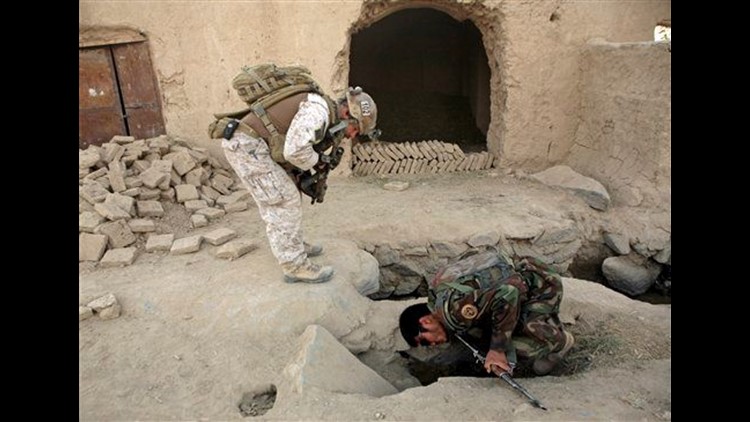KABUL, Afghanistan (AP) — Washington has pledged in a newly agreed strategic pact to help defend Afghanistan militarily for at least a decade after the country formally takes control of its own security, an Afghan official said Monday.
The draft agreement signed on Sunday also says the U.S. will only take such actions with Afghan agreement. The United States also pledged it will not launch attacks on other countries from Afghan soil, according to sections of the accord read out in parliament by Afghan National Security Adviser Rangin Dadfar Spanta.
Afghan officials had previously said that they would not allow their country to be used to launch drone attacks into Pakistan or other neighboring countries after the deadline for most foreign forces to withdraw by the end of 2014.
"Considering that stability in Afghanistan would be stability for Central Asia and South Asia, the United States emphasizes that any kind of interference in Afghan affairs would be a matter of concern for the United States," he said, quoting from the Dari language version of the agreement.
"If any interference occurs, the United States, with the agreement of both countries, will give a proper response, including diplomatic means, political means, economic means and even military means."
He stressed that any such actions would be taken only with Afghan approval.
The commitment is a reminder that while U.S. forces are drawing down in Afghanistan over the next two years, the American military will remain active in the country long after that.
The draft agreement on a long-delayed strategic partnership agreement ensures Americans will provide military and financial support to the Afghan people for at least a decade beyond the 2014 deadline.
The pact is key to the U.S. exit strategy in Afghanistan because it establishes guidelines for any American forces who remain after the withdrawal deadline and for financial help to the impoverished country and its security forces.
The most contentious issues between the Afghan and U.S. government were resolved in separate memorandums of understanding governing the conduct of night raids and control of detainees ahead of the strategic partnership pact.
The agreement as read out by Spanta is broad, addressing a mutual commitment to the stability of Afghanistan and to human rights. It does not address specific troop levels or the size or location of bases, though it does say that the U.S. has no plans to keep permanent military bases in Afghanistan.
Many Afghans worry that the U.S. wants permanent bases, a setup that would make it more of an occupying force than an ally. Spanta said that specific decisions about bases will be left to a later deal.
U.S. officials involved in negotiations have said that they see the strategic partnership as overarching agreement to continue to support Afghanistan, with details on troop conduct and strength to be worked out in a "technical agreement" still to come.
The U.S. pledged in the agreement to continue to fund Afghan security forces after 2014. It does not say how much money this will involve, but says it should be enough to support the force. U.S. officials have said they expect to pay about $4 billion a year to fund Afghan forces, but the funding would have to be approved by Congress.
The agreement also says the U.S. will help support Afghan economic development, health care programs, education and social initiatives, and stresses that the U.S. remains committed to defending human rights and the right of free speech.
Afghan and American officials finalized the text of the document on Sunday after a year and a half of negotiations during which it often seemed that the deal was likely to fall apart. They went through 23 drafts before both sides were finally satisfied, Spanta said.
"We have had so many difficult discussions among ourselves and also with the U.S. delegation," Spanta said.
The agreement still has to go through internal reviews in both countries and to be signed by the Afghan and American presidents.
The document is needed to provide U.S. forces with the authority to continue in Afghanistan after 2014, when the Afghan government is slated to take over control of security countrywide.
The majority of U.S. combat troops are expected to be out of the country by that date, but some combat forces will continue to go on missions, and trainers and advisers to the Afghan security forces will also remain. The strategic partnership agreement covers the period from 2014 to 2024, Spanta said.
Spanta said the part of the document that took the most debate was section three on maintaining stability and peace in Afghanistan.
U.S. officials have declined to comment on the document until it is signed, or to provide the original English text.
Copyright 2012 The Associated Press.



